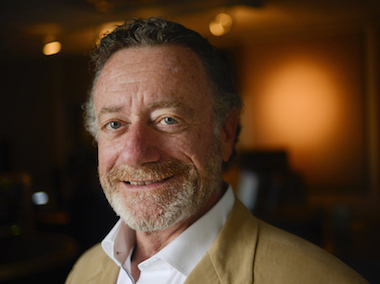Tag: NPR
Margaret Low Smith, NPR’s senior news veep, will depart for The Atlantic
Margaret Low Smith, NPR’s senior vice president for news, is leaving the network to take a position with The Atlantic as president ...Tuesday roundup: Book highlights NPR’s history, ONA backs net neutrality
Plus: A survey finds high loyalty among public radio listeners, and a former news exec moves to PR.Thursday roundup: Details about NPR One, PRNDI signs open letter on government transparency
Plus: An NPR reporter's social media mishap, and alt.Latino celebrates four years.Stations find no easy replacements for soon-to-be-canceled Tell Me More
The cancellation of NPR’s Tell Me More is leaving pubradio program directors struggling to fill the gap left by the show, which presented diverse ...Proposed NPR clocks would add morning newscasts, longer underwriting credits
A proposed revamp of NPR’s newsmagazines would allow for longer underwriting credits, expand the number of morning newscasts, and incorporate American Public ...Salt Lake City’s KCPW hits fundraising goal to keep programming
With a day to spare, Salt Lake City’s KCPW-FM hit its goal of raising $42,000 to pay off delinquent programming fees and ...New NPR president Mohn starts job facing big expectations
The successful broadcaster and investor's to-do list includes bolstering NPR's finances and stepping up collaborations with stations.Pubradio news stations join iTunes Radio lineup
Expanding NPR’s footprint as the first news provider on Apple’s iTunes Radio, 42 member stations join the lineup today. iTunes Radio, which ...A year in, NPR’s Code Switch still figuring out commenting
In their efforts to foster a productive dialogue with readers, the race and culture blog's editors have turned their comments section into ...Engineers seek solution to varied volume of satellite-fed programs
A recent NPR study confirmed that what many have surmised for years is true: Public radio shows sent through the Public Radio Satellite ...Friday roundup: Diplomatic showcase features PBS docs; WBUR gets $1M donation
Plus: Reading Rainbow hits its fundraising goal, and a call to boycott NPR.NPR cancels ‘Tell Me More’, cuts 28 staff positions
A mandate for a balanced budget and a drive to reduce its production commitments spurred NPR to cancel Tell Me More, one of the ...NPR will cancel ‘Tell Me More’, eliminate 28 jobs to balance budget
An updated version of this article was posted May 28. NPR announced today that it will cancel Tell Me More, its weekday midday show ...Tuesday roundup: TPR volunteer invents story to meet Greene; NPR compiles commencement speeches
Plus: The New York Times profiles Sandra Tsing Loh, and public media still matter to the director of the Peabody Awards.President Obama calls in tribute for Kasell’s ‘Wait Wait’ sign off
Carl Kasell capped more than three decades at NPR with a taping of his final Wait Wait... Don't Tell Me! episode and an auditorium ...




